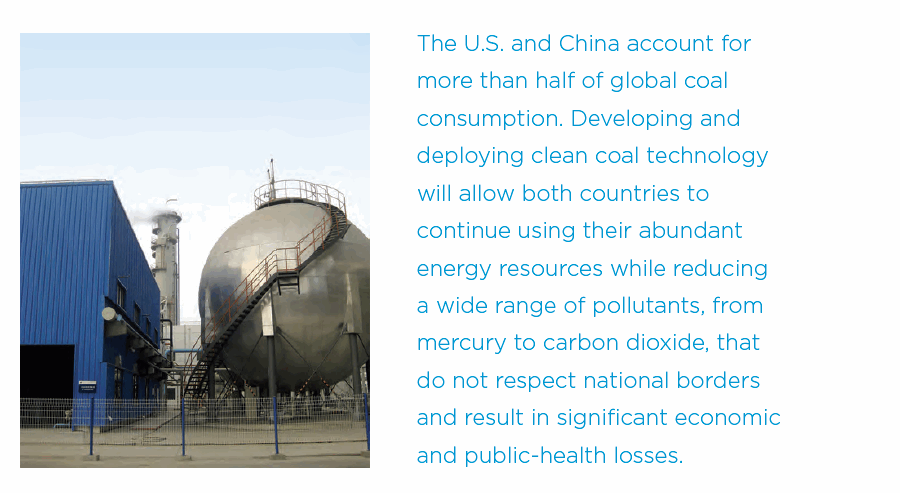U.S. DEPARTMENT OF ENERGY
The United States and the People’s Republic of China have worked together on science and technology for more than 30 years. Under the Science and Technology Cooperation Agreement of 1979, signed soon after normalization of diplomatic relations, our two countries have cooperated in a diverse range of fields, including basic research in physics and chemistry, earth and atmospheric sciences, a variety of energy-related areas, environmental management, agriculture, fisheries, civil industrial technology, geology, health, and natural disaster planning.
More recently, in the face of emerging global challenges such as energy security and climate change, the United States and China entered into a new phase of mutually beneficial cooperation. In June 2008, the U.S.-China Ten Year Framework for Cooperation on Energy and the Environment was created and today it includes action plans for cooperation on energy efficiency, electricity, transportation, air, water, wetlands, nature reserves and protected areas.
In November 2009, President Barack Obama and President Hu Jintao announced seven new U.S.- China clean energy initiatives during their Beijing summit. In doing so, the leaders of the world’s two largest energy producers and consumers affirmed the importance of the transition to a clean and low-carbon economy—and the vast opportunities for citizens of both countries in that transition.
The following joint initiatives were announced in November 2009:
- U.S.-China Clean Energy Research Center. Scientists and engineers from both countries are working together to develop clean energy technologies, initially focusing on building energy efficiency, clean coal and clean vehicles. Both countries are contributing equally to $150 million in financial support from public and private sources over five years.
- Electric Vehicles Initiative. This initiative includes the joint development of standards for charging plugs and testing protocols of batteries and other devices, demonstration projects in paired cities to collect and share data on charging patterns and consumer preferences, joint development of technical roadmaps, and public education projects.
- Energy Efficiency Action Plan. Both governments are working together with the private sector to develop energy efficient building codes and rating systems, benchmark industrial energy efficiency, train building inspectors and energy efficiency auditors for industrial facilities, harmonize test procedures and performance metrics for energy-efficient consumer products, and exchange best practices in energy efficiency labeling systems.
- Renewable Energy Partnership. The two countries are developing roadmaps for widespread renewable energy deployment in both countries. The Partnership provides technical and analytical resources to states and regions in both countries to support renewable energy deployment and facilitates state-to-state and region-to-region partnerships to share experience and best practices.
- 21st Century Coal. The two countries are bringing U.S. and Chinese scientists and engineers together to cooperate on developing clean coal and carbon capture and storage technologies.
- Shale Gas Resource Initiative. The two governments are working together to assess China’s shale gas potential, promote environmentally-sustainable development of shale gas resources, conduct joint technical studies to accelerate development of shale gas resources in China, and promote shale gas investment through industry forums, study tours, and workshops.
- Energy Cooperation Program. A new public-private partnership has been formed to leverage private sector resources for project development work in China across a broad array of clean energy projects. The ECP, consisting of 24 founding member U.S. companies, works on cooperation projects in renewable energy, smart grid, clean transportation, green building, clean coal, combined heat and power, and energy efficiency.
In the past year progress under these initiatives has been substantial, with activities including those described in the pages that follow.
Download full report (PDF): U.S.-China Clean Energy Cooperation
About the U.S. Department of Energy
www.energy.gov
“The Department of Energy’s overarching mission is to advance the national, economic, and energy security of the United States; to promote scientific and technological innovation in support of that mission; and to ensure the environmental cleanup of the national nuclear weapons complex.”
Tags: China, Electric Vehicles, EVs, Natural Gas, People's Republic of China, U.S. DOE, US Department of Energy







 RSS Feed
RSS Feed